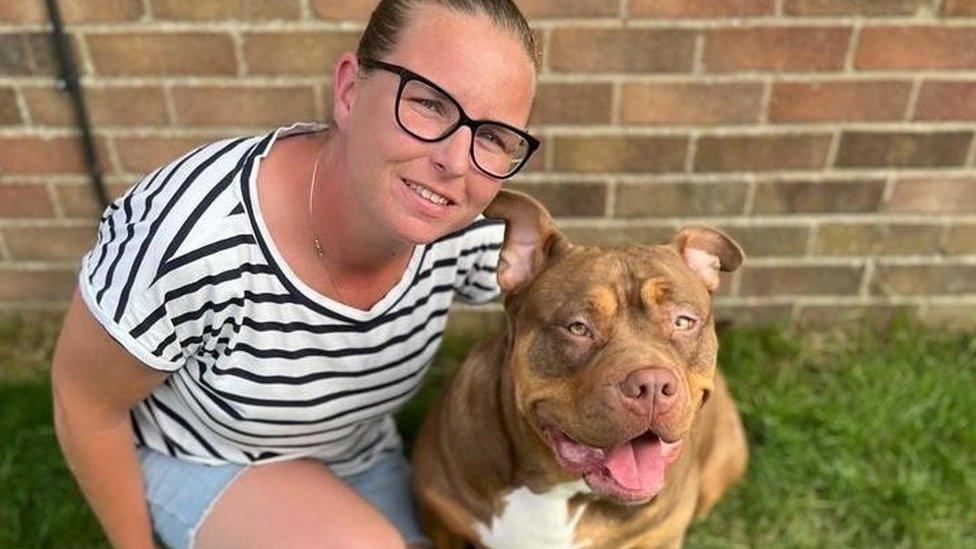Scots taking in XL Bullies as England cracks down
- Published
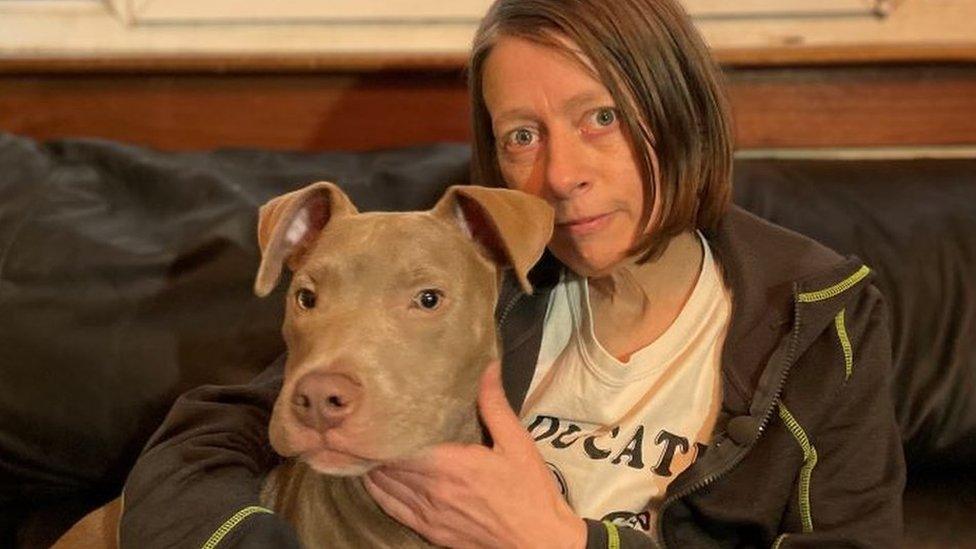
Angie Lukey with five-month-old XL Bully Buddy, who has relocated from Liverpool to Edinburgh
People in Scotland are taking in XL Bully dogs as England prepares to bring in tougher new restrictions on the breed.
From 31 December, it will be against the law to sell, abandon, breed from or give away an American XL Bully, or have one in public without a lead and muzzle.
Owners who want to keep their dogs must apply to an exemption scheme or have their dog euthanised.
The ban in England and Wales follows a number of attacks involving the breed, although owners insist the dogs, despite their appearance, make lovable pets.
The Scottish government has not introduced a ban, creating concerns about a potential loophole for dangerous dogs.
Buddy, a five-month-old XL Bully, has just arrived in Scotland after his previous owner in Liverpool decided to give him up ahead of the restrictions being introduced.
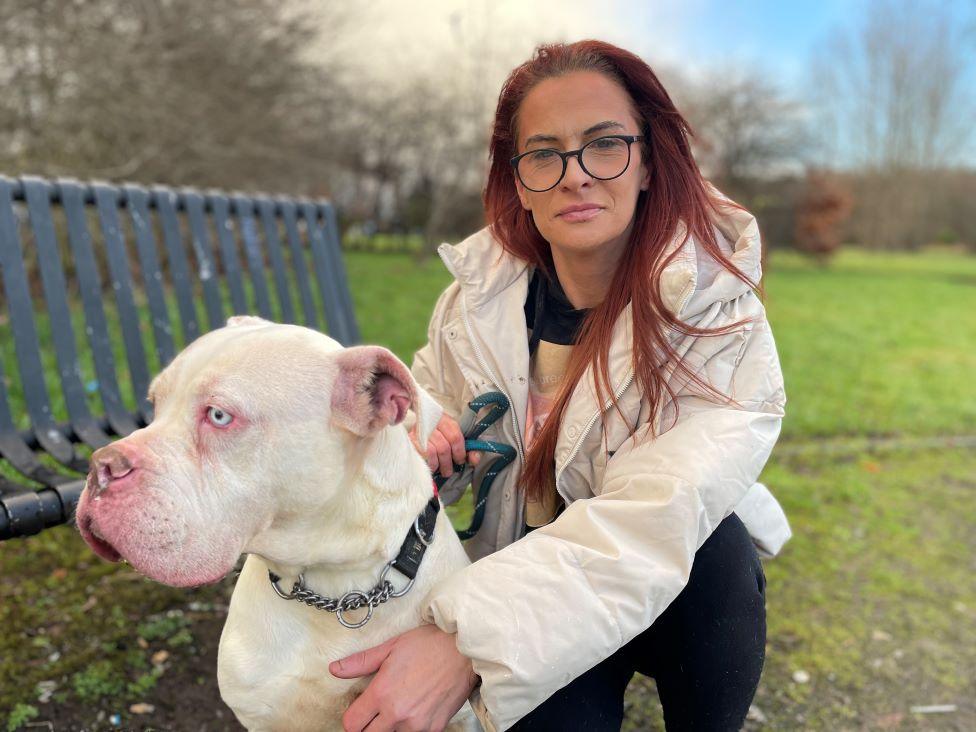
Kellyanne Shaw from All Bullie Charity Rescue with George
His move north was co-ordinated by Kellyanne Shaw from All Bullie Charity Rescue in Glasgow.
She stepped in after many animal shelters in Scotland closed their doors to XL Bullies.
"We're absolutely inundated," she said.
"I can't even respond to everybody, there's just too many messages, emails and phone calls.
"Everybody's trying to dump their dogs at the moment, unfortunately.
"There are a lot of people saying that their housing, their council, their landlord have told them categorically that they need to rehome their dog or they will lose their tenancy."
Ms Shaw added: "It's a family member - how do you choose between a roof over your head and a family member?"
Buddy's new home is with Angie Lukey in Edinburgh. She's got years of experience looking after XL Bullies.
"I'm in a position to take a rescue and luckily I've rescued this little one," she says.
"This literally is my Christmas present to myself, and more of a present to him. It's the present of life.
"Sadly, come the 1st January a lot of these poor dogs might not be with us and it's all due to being judged for how they look."
Angie thinks that people need to judge the other end of the lead - the owners.
It is a view shared by animal charity Dog Aid Scotland.

Dog Aid Scotland's Ross MacFadyen says owners must take responsibility
Chief Executive Ross MacFadyen says: "The owner, of course, has a responsibility, we can't put all of this on the dog.
"The onus is on the owner at the end of the day to provide the care and support that I'm sure the majority of dog owners do already.
"I don't think banning something is necessarily the answer. It just promotes the idea of pushing it underground.
"I think it's a good thing that Scotland has maintained the status quo and it gives an opportunity to the likes of Dog Aid Scotland to promote the importance of responsible ownership."
Other animal charities agree that the ban is not the right solution.
The Scottish SPCA says; "For thirty-two years the Dangerous Dogs Act has proven ineffective in reducing dog bites and attacks.
"With more and more pets in Scotland, we believe the focus has to be on putting more responsibility on owners."
Those who support a ban argue that Scotland is making a mistake.
Doug Smith, from Bully Watch UK, says: "Scotland already operates a deed not breed approach when it comes to preventing dog attacks which has proved unworkable.
"The Scottish government has consulted on dangerous dogs for over three years and has not lifted a finger. We are baffled that they have decided not to act. "
The Scottish government says: "Any change to the rules must be evidenced-based and we are moving swiftly to carefully consider the evidence so we can make the right decision for Scotland and public safety is paramount to our deliberations.
"Scotland already has a dog control notice regime that applies to all dogs and is focused on preventing dog attacks from happening in the first place."
- Published24 March
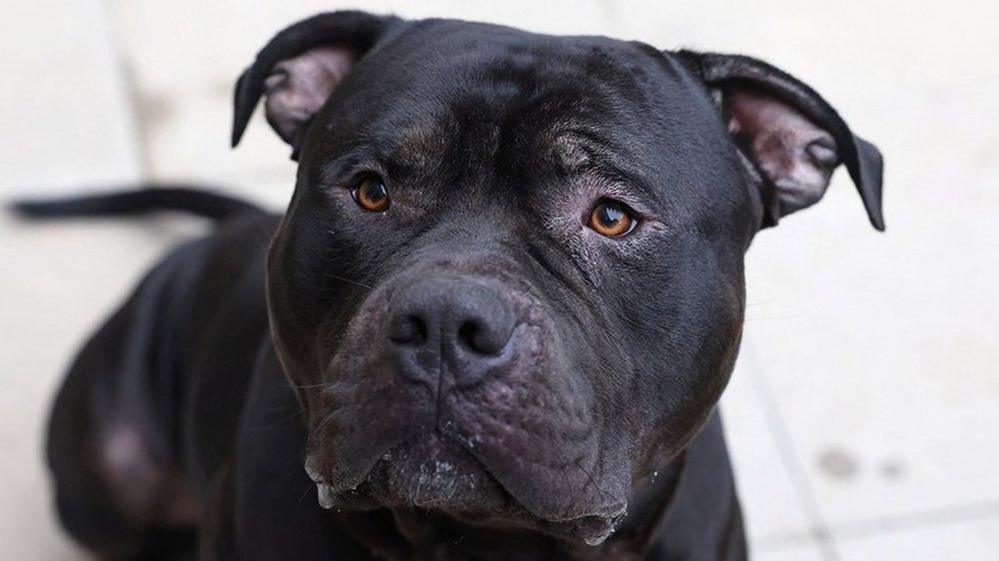
- Published18 December 2023
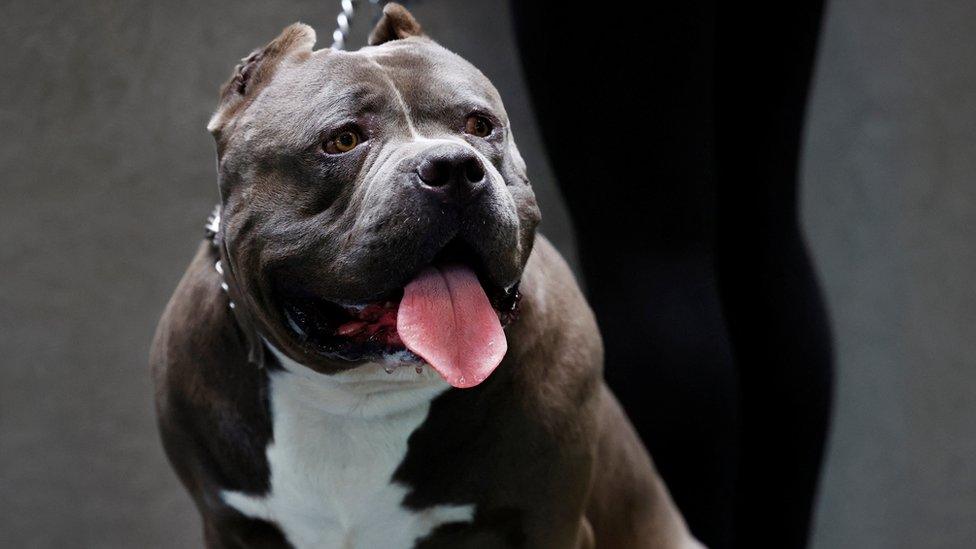
- Published14 November 2023
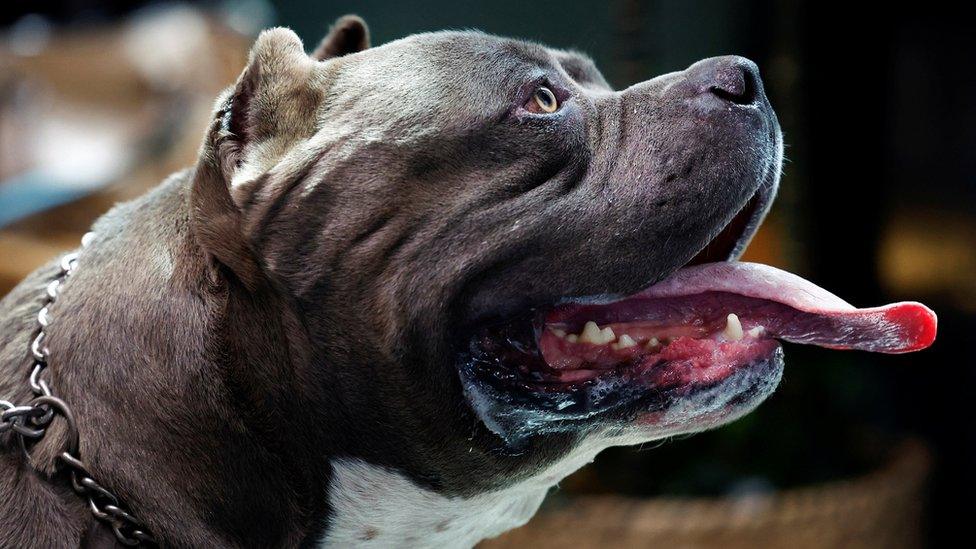
- Published15 September 2023
